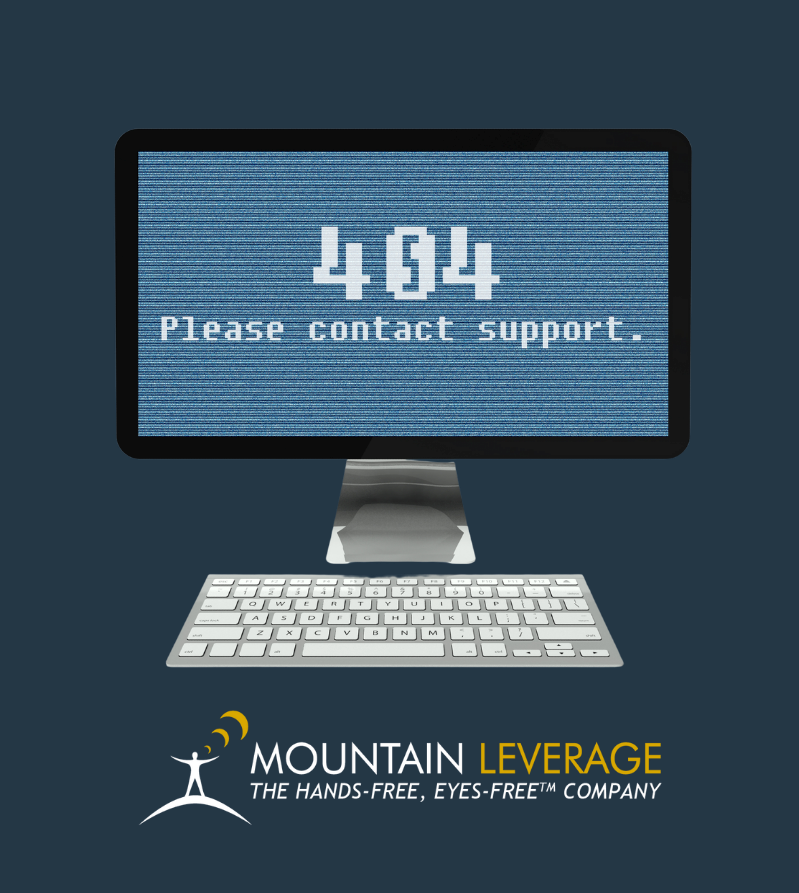Nobody wants to start their day with a call from IT, but not getting a call at all and finding out there’s a server problem impacting workflow is even worse. If you’re like most companies that use voice picking systems, you probably manage your work server yourself via a virtual machine. Having the server close to home is helpful for many reasons, but it can sometimes be a hassle as well. What should you do when you get that dreaded call from IT, or when something breaks?

Ensuring You Have the Right Tools for the Job
One possible problem with on-site voice picking system servers is digital data management. Jobs aren’t being imported or exported due to lack of storage space and you might also be unable to create new operators. Fortunately, these issues can be easy to diagnose and fix, as they tend to fall into one of two categories.
The first issue could be that insufficient data storage was allocated when the server was created. Fortunately, relatively little space is needed for operations supporting three hundred or fewer devices. With that said, minimum requirements are just that, a minimum. Our customer support team recommends better than minimum hardware to both improve performance and be ready for potential future growth. If your business grows to add additional users and devices, you may find that the demands of the server exceed the original requirements.
Digital Cleaning (Much Easier than Real Cleaning)
One common memory and storage issue is not appropriately managing logs within your SQL server (the most common server programming language). If you find yourself constantly running out of space even when the server exceeds the system requirements, data probably isn’t being properly deleted. It’s important to keep two primary types of data as a safety net: SQL database backups and transaction logs. They don’t need to stick around forever though – no one cares to put them in a scrapbook for posterity!
- SQL database backups are perfect for executing a rollback when an unexpected system shutdown or similar short-term problem occurs. For this reason, we recommend keeping database backups no more than a week. If more time than that has elapsed without the problem being resolved, backups aren’t going to help!
- SQL transaction logs are helpful in diagnosing problems, so they can stick around a bit longer. We recommend about three months for transaction logs.
We proactively reach out to customers if we see that they’re running low on space, or if we see that the CPU/RAM is insufficient.”
Gail, ML Support Team
Alerts Are Your Best Friend
So, now that you know what the primary causes of server problems are, how can you prepare for them? The first way is simple; just check that your server’s hardware meets the minimum requirements specified by the voice picking system documentation. When you work with Mountain Leverage, this is one of the first things we’ll check when installing or upgrading a system.
Secondly, have your database administrator or IT department set proper time frames for old data deletion. They can even set alerts for certain storage capacities, letting you know that something isn’t flowing smoothly before it impacts workflow.
“IT is always the first line of defense. With alerts, they can see as soon as the server starts running out of space and take steps to fix it.” – Gail, ML Support Team
And of course, when something unforeseeable goes wrong, our support team is available 24/7. Total peace of mind!
Ready to make setting up and maintaining your voice picking system easy and painless? Book a free discovery call with our experts today.
Archive
Mountain Leverage Voice Vs. Personal Voice Assistants: What Makes Our Technology Better?
Championing Our Customers in a New Way – Meet Jaime
Critical VMware Vulnerabilities and Data Security Risks – What You Need to Know
Reducing Training Costs and Time With Mountain Leverage Voice
Don’t Miss The Boat! Charting a Course For Automation
